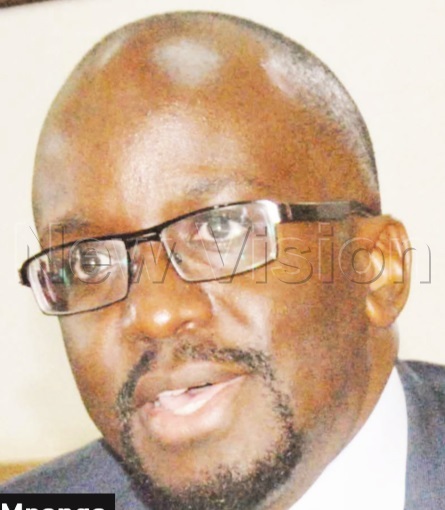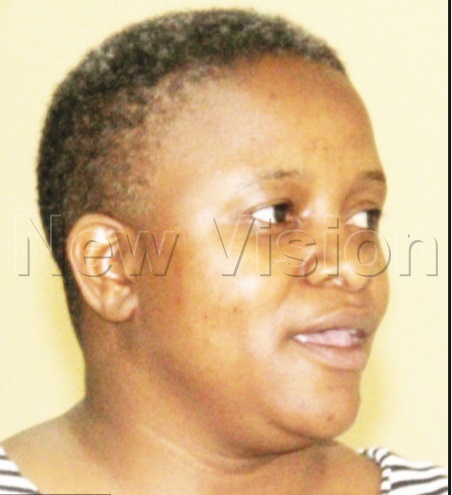Widows have a right to own marital home — court
Jul 07, 2020
Matrimonial home belongs to spouses in a matrimonial marriage and it is the last spouse who can give it away to another person.

Family & Parenting
Human rights activists and lawyers have hailed the Family Division of the High Court's verdict which upholds the right of widows to own the matrimonial home after the death of their spouses.
Justice Godfrey Namundi of the family court on recently ruled that it is unlawful to give away a matrimonial home without the consent of a surviving spouse.
There has been a tendency by husbands to bequeath the marital property to their sons/heirs, while at the same time letting the widows to continue living in the home.
The judgment follows a suit by Herbert Kolya who sued his grandmother Ekiriya Mawemuko Kolya asking court to compel her to distribute the property in the estate of her late husband Israel Kikomeko Kolya, in accordance with the Will.
Kikomeko died in 1997, but gave the matrimonial property to his son and heir, Herbert Lukanga Kolya. Kikomeko, however, left instructions that his wife remain in the home as long as she did not remarry.
The widow, Ekiriya Mawemuko Kolya, rejected the Will over the question of the matrimonial home. Herbert Lukanga has since also passed away.

In 2016, Lukanga's son petitioned seeking court to compel his grandmother to provide an account for all the assets of Kikomeko lest the letters of administration granted to her be revoked.
The grandson also argued that the matrimonial home had been bequeathed to his father Herbert Lukanga. In a sweet-bitter judgement, the judge ruled that it was unlawful for Kikomeko to bequeath the matrimonial home to his heir without the consent of his spouse.
"The plaintiff as an administrator of the estate of the late Lukanga is not entitled to the property at Namirembe since it is matrimonial property.
The same passed on to the widow upon death of her husband and she reserves the right to deal with it in any way she deems fit," Justice Namundi, ruled.
The judgment has been described by many as landmark in regard to matrimonial property in the country.
Rights activists, lawyers reactions
City Lawyer David Mpanga said the decision is important noting that it is common for matrimonial property to be held in the husband's name.
"This is a great victory for gender equality. I hope when that difficult situation occurs, court determines it on merit. In the meantime, let spouses (mostly women) who contribute to their matrimonial homes not be rendered hostages of their sons or grandsons," Mpanga tweeted.
Women rights activist Diana Kagere said: "This judgment is a victory for all women in Uganda regarding property rights. It is also timely for the Succession Amendment Bill. What a remarkable precedent."
Former minister of ethics and integrity Miria Matembe said a matrimonial home belongs to spouses in a matrimonial marriage and it is the last spouse who can give it away to another person.
"I think the Judgment is in line with the law. If the first spouse gives it away, where does the surviving spouse go? The judge is right because it is well established in the law," Matembe said speaking to New Vision recently.

Makerere University law don Dr Patricia Atim described the verdict as a good and progressive decision. "Uganda has made a number of undertakings in international conventions, among which is the elimination of all forms of discrimination against women and I totally agree with the decision," Atim said.
She added: "Article 31 of the Constitution, which is specifically about marriage stipulates that every Ugandan of 18 years and above can marry and should be treated equally at marriage, during and at dissolution.
If the marriage is dissolved due to death, equal rights have to be observed." Atim also attacked Parliament over what she described as the delayed passing of laws, which address gender inequality.
"Our court jurisprudence is going ahead of Parliament in producing progressive decisions. Parliament must wake up and pass laws that address the new dimensions in the society," Atim said.
Sheikh Imran Ssali, the acting director of Dawa at Uganda Muslim Supreme Council (UMSC), said: "The matrimonial property is for all children and the widow. Therefore, an heir cannot solely inherit matrimonial property and I think the judgment is very good."
Imam Idi Kasozi said: "I think the judgment is very good because even in Islam the death of one spouse does not take away the right of the surviving spouse to benefit from their estate. That is why in Islam when a husband dies, we immediately give the beneficiaries their share to avoid these unfortunate scenarios."
The judge based his decision on the 2013 case of Simon Adong and others vs David Opolot. He noted that since death dissolves a marriage, the widow has the right to inherit from her husband because she is entitled to benefit from her late husband's estate.
"Men and women are entitled to equal rights in marriage, during marriage and at its dissolution as enshrined in Article 31(1) of the Constitution," the judge noted.
The judge also cleared the widow over accusations of obtaining letters of administration to manage the estate without annexing a Will.
"The court which granted her letters of administration had competent jurisdiction to grant them in respect to her late husband's estate," the judge ruled.
Court, therefore, maintained the widow as the administrator of her late husband's estate on grounds that she is most one appropriate to manage it.
The judge also declared the Will defective and said the letters of administration granted to the widow substituted it.
The judge said since the Will was defective, for bequeathing marital property to the heir, it was assumed that Israel Kikomeko Kolya died intestate without leaving behind a Will.
Court directives
The judge, however, directed the widow to distribute the rest of the estate in line with the judgment and file an inventory and account of the administration of the estate in court within six months.
Court made no orders to costs on grounds that it was a family matter.
Background of the case
Kikomeko died in 1997. He left the matrimonial home to his heir Herbert Lukanga Kolya. The home is comprised in LRV 1139 FOLIO 1 Kibuga Block 10, Plot 864 at Namirembe in Kampala.
Lukanga Kolya gave other properties to other children Kate Nabagala, Samali Gwedda and Sarah Nalukwago (Sarah Mponye) and to other benefi ciaries his land at Butega.
The widow rejected her husband's Will since it gave away the matrimonial home.
On April 5, 2000, the widow went ahead and obtained letters of administration to manage his estate without annexing a Will which Kikomeko made on January 27, 1997.
This followed the agreement and decision of family members to do away with the Will since it was defective.
In 2016, the grandson (son of the Kolya's heir) petitioned court accusing her of failure to distribute the estate of Kikomeko and concealing the Will.
Widow's testimony
In her testimony, Mawemuko, who retired as a midwife at Mengo Hospital, stated that she was legally married to Kikomeko and they had six children at the time of his death in 1997.
She narrated that her husband acquired the property prior to their marriage and on it stood a small mud and wattle house, but they later built another house towards whose construction she contributed.
Mawemuko was, however, aggrieved that her late husband gave the matrimonial property at Namirembe to his heir (Lukanga) and the property in Makindye, which is registered in her names under a Buganda Land Board lease, to Kate Samali.
Mawemuko told court that he was not in agreement with Will because the deceased gave away the matrimonial home, whose construction she had greatly contributed to together with her husband.
Daughter's testimony
Mponye said her parents lived together in their matrimonial home until death of her father in 1997.
She stated that her mother was gainfully employed and greatly contributed to the construction of their home.
In 1980, however, her father gave her elder brother Herbert Lukanga the upper part of the home as a gift, which is still under his sole management.
Mponye revealed upon death of her father, her cousin and former Buganda Kingdom Katikkiro Dan Muliika read out the Will, which bequeathed the home to the heir.
The family rejected it because the testator gave away the matrimonial home to the heir.
